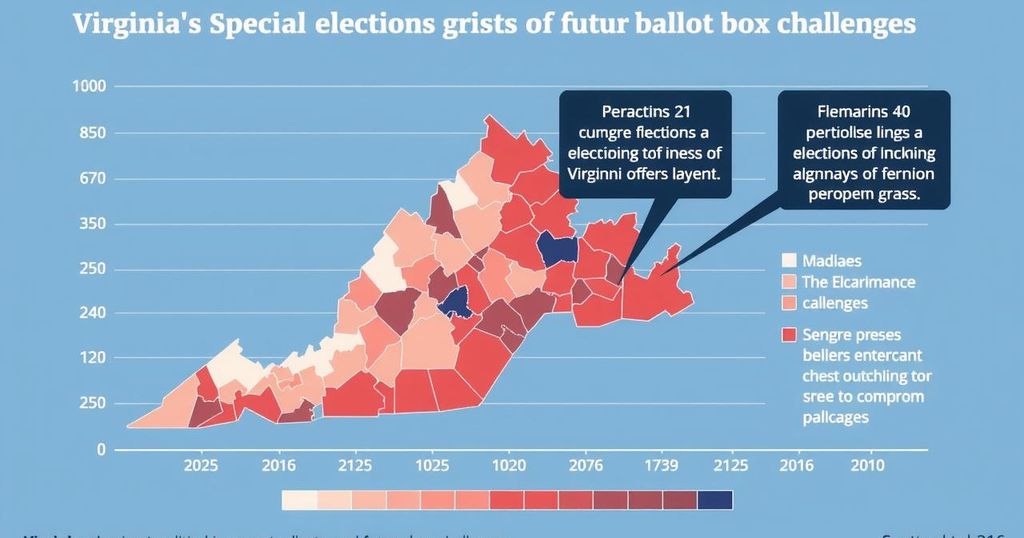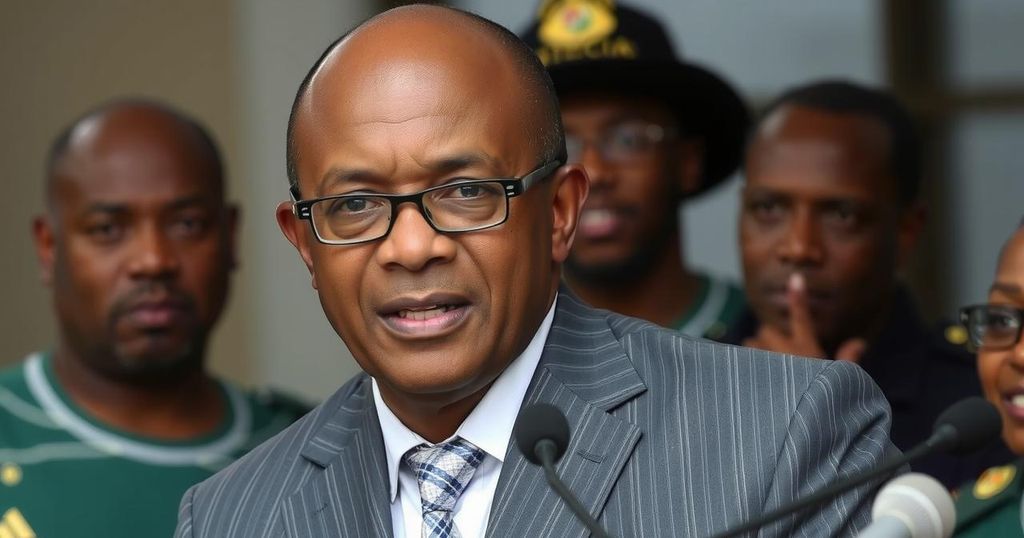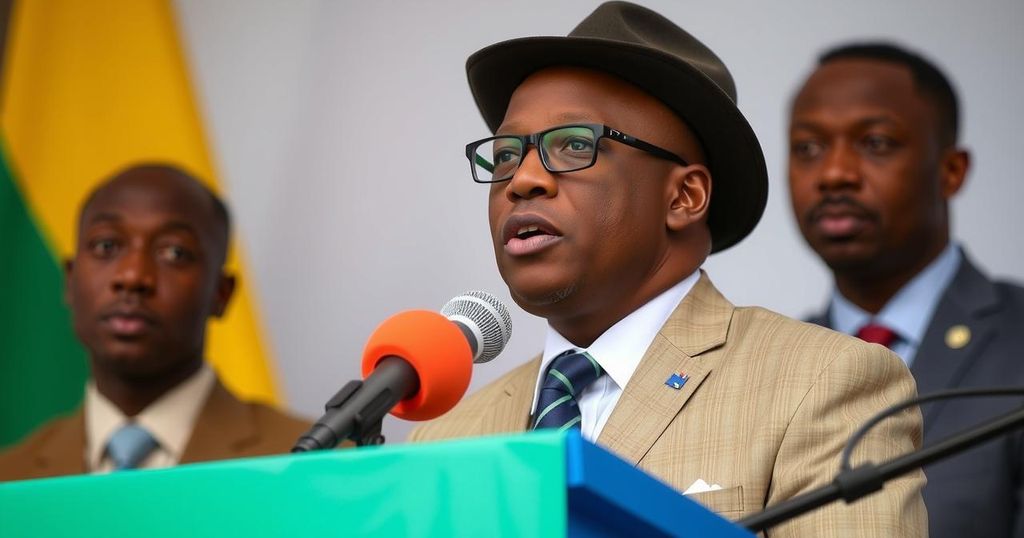World news
AFRICA, ASSOCIATED PRESS, CIVIL RIGHTS, CONGRESS, DEMOCRATS, ELECTION, JOHN MCGUIRE, KAMAL, LOUDON, LOUDON COUNTY, NORTH AMERICA, PRESIDENTIAL CANDIDATES, PRESIDENTIAL ELECTION 2024, RAM VENKATACHALAM, REPRODUCTIVE RIGHTS, REPUBLICAN, RICHMOND, SENATE, SOUTH AFRICA, SUHAS SUBRAMANYAM, TU, U. S. SENATE, UNITED STATES, VIRGINIA
Maya Ramirez
0 Comments
Virginia’s Special Elections: Implications for Upcoming Political Battles in 2025 and 2026
Virginia’s special elections resulted in Democrats winning two of three contests, maintaining legislative majorities and reflecting voter sentiments post-President-elect Trump’s victory. The significance of these elections extends beyond state politics as they provide early indicators of the political atmosphere leading to upcoming gubernatorial races in Virginia and New Jersey, and the 2026 midterm elections.
In the recent special elections in Virginia, Democrats successfully maintained their slim majorities in the state legislature by winning two out of three contests. These elections served as preliminary indicators of Republican and Democratic voter sentiments following President-elect Trump’s recent electoral success. The outcomes are significant as they may influence momentum for upcoming gubernatorial races in Virginia and New Jersey and the crucial midterm elections in 2026.
The two Democratic candidates, Kannan Srinivasan and JJ Singh, emerged victorious in Loudoun County, a region that has shifted from Republican dominance to Democratic favor over the past decade. Srinivasan triumphed in a special state Senate election, while Singh won the state House seat that Srinivasan vacated after his election to Congress. In contrast, the Republicans claimed victory in a third special election in a district west of Richmond, where candidate Luther Cifers defeated Democrat Jack Trammell.
The results of these elections will allow Democrats to maintain a 21-19 majority in the Virginia Senate and a narrow 51-49 control in the state House of Delegates as Republican Governor Glenn Youngkin approaches the end of his term. Given Virginia’s unique political landscape, characterized by a state law that prevents governors from serving consecutive terms, Youngkin will not campaign for re-election in 2024.
Virginia and New Jersey hold the distinction of being the only states to conduct gubernatorial elections following a presidential election, thus attracting significant national attention. These contests are often seen as barometers for public sentiment towards the incumbent party in Washington, D.C., making the outcomes of these elections critically important.
Virginia’s recent special elections are pivotal for understanding the current political dynamics as they reflect voter reactions to the recent successes of the Republican Party, particularly in the broader context of the forthcoming gubernatorial and congressional elections. The state’s political landscape has shifted notably in recent years, with Loudoun County exemplifying this change, becoming a focal point in national discussions on contemporary social issues. These elections also set the stage for the political atmosphere leading to the 2025 gubernatorial elections and the midterms in 2026, thereby serving as crucial indicators for strategists in both major parties.
The conclusion drawn from the recent special elections in Virginia is that despite the Republican Party’s national sweep, Democrats have retained a narrow legislative majority in Virginia. This outcome not only demonstrates the resilience of Democratic support in suburban districts but also sets the tone for upcoming elections in 2025 and 2026. As the political landscape continue to evolve, the outcomes of these elections will be critical for both parties as they strive to address voter concerns and mobilize their bases for future contests.
Original Source: www.foxnews.com




Post Comment